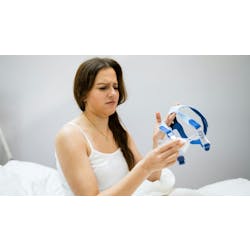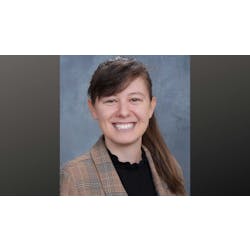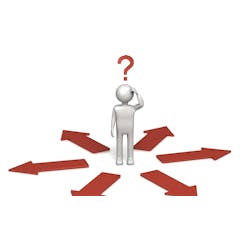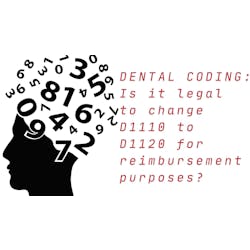Last August, I had an idea. Simultaneously, two other hygienists were similarly inspired. It didn’t take us long to find each other, and, just like that, the Fire Starters were born. Sandra Boucher-Bessent, Shirley Gutkowski, and I had our brainstorms thanks to the e-mail list run by Amy Nieves, RDH (www.amysrdhlist.com).
The 1,600 hygienists on the list had been discussing the public’s lack of knowledge about our profession. You all know that feeling. How many times has a patient called you “the nurse” or “the assistant?” How many television commercials have you seen that advise consumers to “talk to the dentist” about a new toothpaste or floss? Why don’t patients know they can look to us for preventive maintenance? The “listers” agreed that sometimes dental hygienists feel invisible. We should do something about it.
“We should go on Oprah,” someone wrote, and others agreed. Those posts started wheels turning in our three heads. Why shouldn’t we go on television? Why couldn’t we have a big, splashy, nationwide forum to discuss our profession?
Shirley scheduled a three-way phone call early in September, and we outlined some ideas. The Fire Starters, as Shirley named us, would lead Amy’s listers in an effort to get that nationwide forum. We could just picture an articulate, informed, and professional panel of hygienists educating Oprah about access to care issues; about the links between oral and systemic health; and about how preceptorship and related ideas can allow substandard care. We’d let the public see exactly who hygienists are and what they can do.
Drawing on the listers, we formed a Fire Starter Team that included Toni Adams, Patti DiGangi, Amy Nieves, and Cheryl Thomas. The team developed an “education initiative” that included a mission statement, some catchy slogans, and an objective to reach our goal.
Our mission statement was: Improving health by improving dental education.
Our slogans were: “If you can’t afford prevention, how will you afford the cure?” and “People with teeth live longer; people with teeth live better.”
Our objective was: to have the listers send dozens, hundreds, maybe a thousand letters to television newsmagazine shows on a specific date, October 15, 2004, in an effort to get on the air with our message. If letters from a thousand hygienists landed in the inboxes of the Oprah producers on October 15, wouldn’t they at least consider doing a show on dental hygiene?
We thought it was worth a shot. In the next few weeks, the education initiative gathered steam. Listers wrote rough drafts of the letters they would send. We discussed main points, anecdotes, and statistics that should be included. We compiled lists of appropriate television shows, including 20/20, Dateline, 60 Minutes, Good Morning America, Primetime, and of course, Oprah. We talked about the positive tone the letters should take, and we encouraged each other to keep all eyes on the goal.
October 15 came, and the letters went out. We waited. We’re still waiting. I cherish the hope that one of our letters is sitting on a TV producer’s desk in a “maybe” pile.
The Fire Starters haven’t given up. The education initiative is still a valuable tool we can use to improve the nation’s health, and we’re still committed to the idea. To that end, we call for another letter-writing campaign. Our new dates are March 14-21, 2005. Take a look at the tips, topics and the sample letter included on the next page, and get busy writing your own. Sometime during the week of March 14-21, send the letter to as many newsmagazine shows as you can. Let’s see what a difference a group of hygienists can make.
Tips and topics• Your letter should answer the questions who, what, where, when, why, and how. The beginning paragraph should function as a hook (“Dental decay is the number one infection in the world.” “More children suffer from dental decay than from asthma.” “I’d never thought of myself as a lifesaver.”) and follow with a statement that addresses the problem (“The nation’s health is at risk.”)
• Discuss the problem, and then discuss the solution. Make sure the solution is centered on dental hygienists.
• Use an active voice/tense, and be positive. Avoid words like can’t, won’t, but, and shouldn’t. Use the computer’s spell checker.
• Keep the perspective on how hygienists can help the public, or what dental hygienists can do to better the nation’s oral health. We are prevention specialists. The key is using that as our message: How our preventive services help people achieve health.
• If you have a personal story (how you saved a patient’s life by doing an oral cancer exam, or how you helped a patient keep her teeth when she thought they were lost), tell it.
• Try to keep the letter to under 500 words (two typewritten pages).
Possible topics include:
• Oral health links to systemic health (heart disease, pre-term, low birth-weight babies, diabetes, digestive diseases)
• Access to care (increase public awareness of the contributions hygienists make to the public; such as how hygienists are changing the oral health of children, adults, and senior citizens in their own communities. Give examples such as mobile dental vans, school-based programs, sealant projects, ACCESS Dental mobile dentistry to long-term care and group home facilities.
• Point out the needs for better access, and that hygienists could provide that access if legal roadblocks were removed.)
• Periodontal therapies (Talk about newest interventions [lasers] and what that means to oral health. Describe periodontal disease as an infection and inflammatory response. Hygienists, not dentists, are the first line defenders. It’s what we do.)
• Early childhood caries (Surgeon General’s National Calls to Action; decay can be treated at the molecular level; decay can be detected early; it’s the most prevalent infection in children).
Sample letterChange is coming in the field of dentistry, and new ideas are popping up faster than six-year molars on a first grader. We are dental hygienists, and we want to show your viewers the new focus of dental hygiene.
Dental hygienists have traditionally followed the lead of their employer dentists in public health education, but we’ve made a new commitment to speak out and take action. We’re the professionals that patients see most often on a typical dental visit, but the public has a fuzzy perception of who we are and what we can do for them. For your viewers, we can answer the following questions:
What is a dental hygienist? How can I be sure thata trained, licensed hygienist is handling my care?
In Alabama, the person scaling your teeth might be an office trainee who has never been to college or taken a board exam. In Florida, it might be a foreign-trained dentist who has had little or no education in preventive periodontal maintenance.• How do my teeth affect my health? Could a dental hygienist save my life? Humorist Lewis Grizzard died from heart valve problems that one of his physicians believes stemmed from Grizzard’s dental neglect.
• What can dental hygienists do for under-served populations such as rural children and nursing home residents?
We can put you in touch with a team of nationally known educators, authors, and business leaders from the field of dentistry to address these issues with your viewers. We hope you’ll join us in educating Americans about new ideas in dental health. We look forward to hearing from you.
Sincerely,
For additional e-mail addresses, see www.amyrdh.com/rdhfirestarters.html
• 48 Hours, 60 Minutes - http://www.cbsnews.com/htdocs/feedback/fb_news_form.shtml
• Dateline - email to [email protected]
• Good Morning America -http://www.abcnews.go.com/sections/GMA/GoodMorningAmerica/GMA_email_form.html;
• Nightline - http://abcnews.go.com/sections/nightline/Nightline/Nightline_email_form.html
• Oprah - https://www.oprah.com/plugger/templates/BeOnTheShow.jhtml?action=respond&plugId=B2100004
• Primetime -http://www.abcnews.go.com/sections/primetime/2020/Primetime_email_form.html





